News on April 16th: XiaoPai Technology launched two brand-new VR headsets at the Frontier 2024 event:equipped with the world's first interchangeable optical engine, Crystal Super, and the budget-friendly Crystal Light.They are priced at $1799 (approximately ¥13043 RMB) and $699 (approximately ¥5068 RMB) respectively.
Pimax Crystal Super VR headset
Crystal Super is a PC VR headset with 29.5 million pixels, a significant increase from the first Crystal's 16.6 million pixels. Other features include inside-out tracking via four cameras, eye tracking for automatic IPD adjustments, dynamic foveated rendering, and integrated audio.
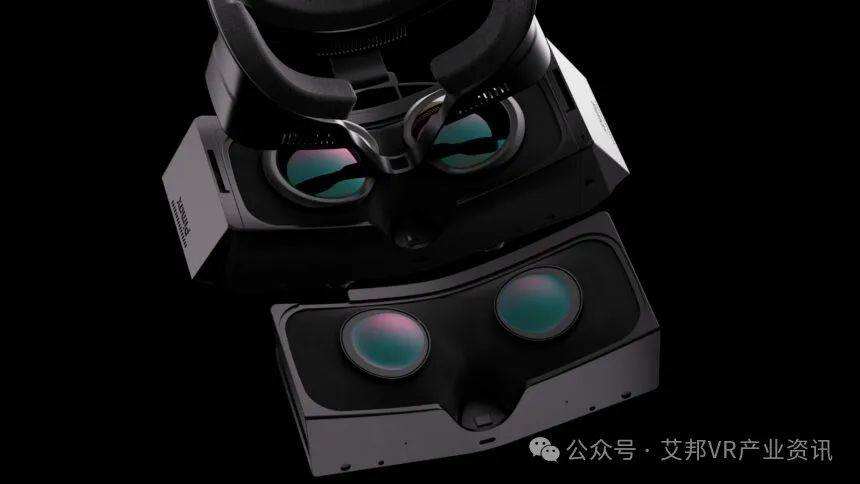
The unique feature of Crystal Super lies in its interchangeable optical system, making it easy to switch displays and lenses and transition between QLED and micro OLED panels. The QLED engine is paired with interchangeable aspheric glass lenses, while the Micro OLED engine uses pancake lenses.
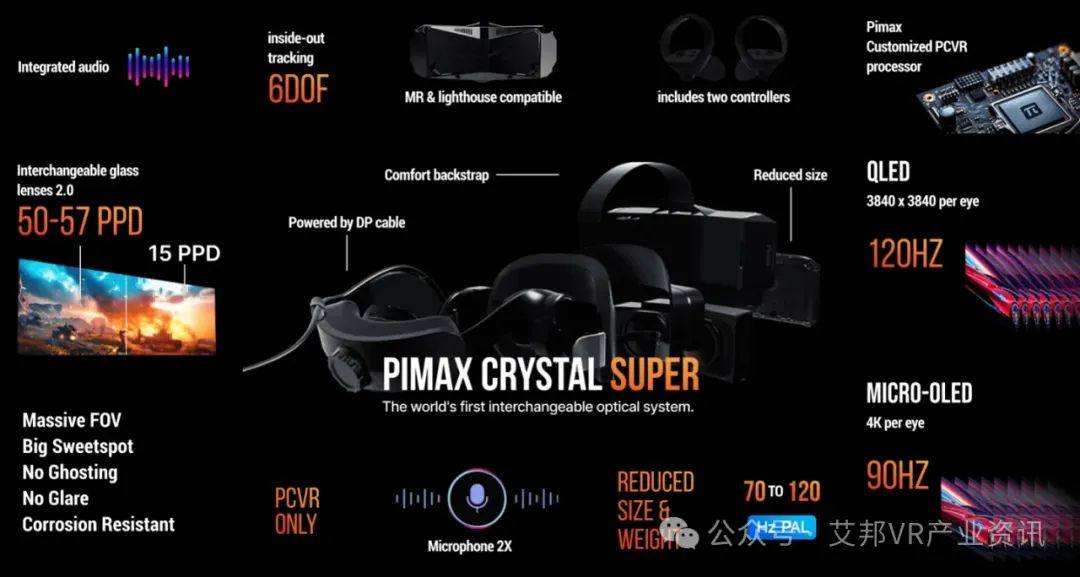
-
Display: QLED+mini LED or Micro-OLED -
Resolution: 3840 × 3840 pixels per eye (QLED version, Micro-OLED) -
Number of pixels: 29.5 million (QLED version, Micro-OLED 4K per eye) -
Brightness: 200 nits (QLED version, micro-OLED TBC) -
Refresh rate: 72Hz/90Hz/120Hz (QLED version), 70Hz/90Hz (micro-OLED 70Hz/90Hz) -
Optics: Aspherical glass lenses (QLED version), pancake glass lenses (micro-OLED) -
Audio: Integrated, 3.5 mm audio socket, 2 microphones -
Tracking: Inside-out, lighthouse cover optional -
VR mode: PC VR only -
Price: From 1,799 US dollars (net)
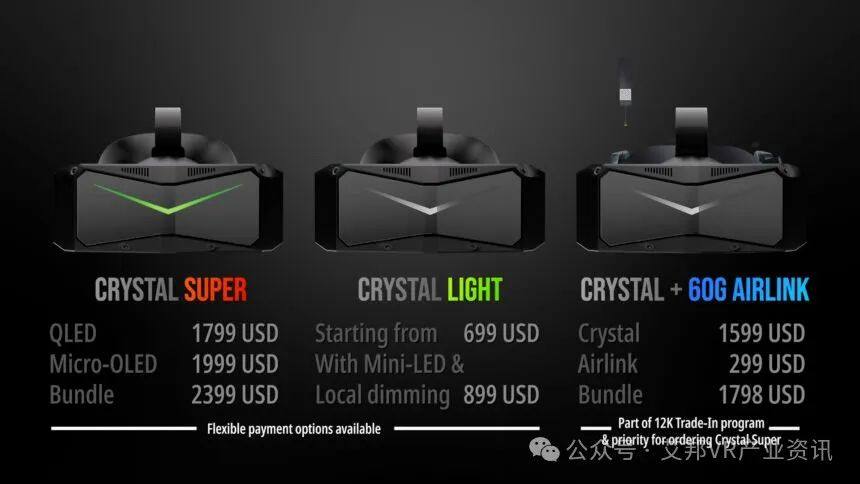
Pimax Crystal Light VR headset
Pimax Crystal Light VR headset features a panel with a resolution of 2880 x 2880 per eye and a refresh rate of 120Hz. It has a 35 PPD angular resolution, offers 6DoF freedom of movement, comes with a custom PCVR processor, built-in hand controllers, and is compatible with the Lighthouse tracking system. As a pure PC VR headset without a battery and XR 2 processor, it is 30% lighter than the original Crystal.
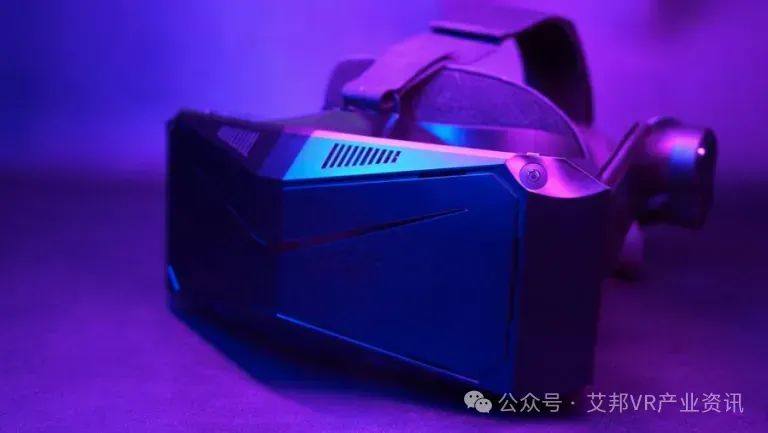
Unlike other Pimax headsets, Crystal Light does not feature interchangeable lenses nor does it include eye tracking functionality. Pimax has priced this device starting at $699 and is now accepting pre-orders, with shipments set to begin in May.
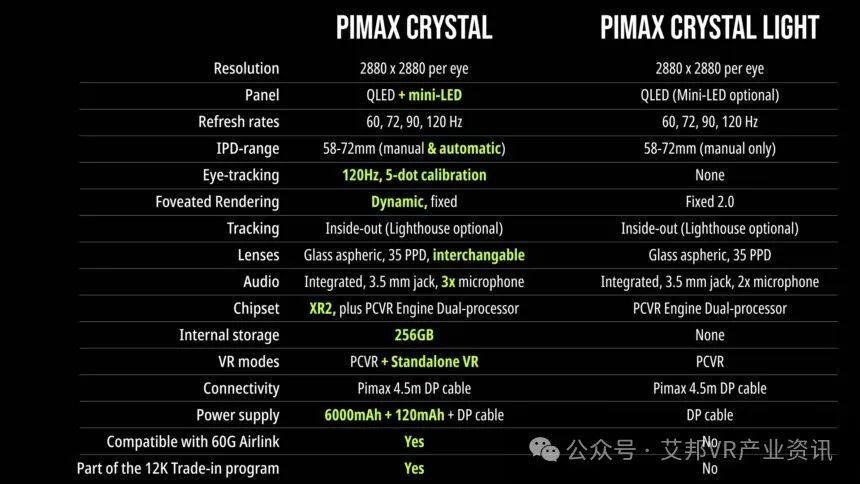
Pimax 60G Airlink Wireless Module
The 60G Airlink Module enables wireless PC VR with the Pimax Crystal. It consists of a combined transmitter and receiver, as well as a dongle that connects to the headset via micro-HDMI. The transmitter and receiver connect to the PC via HDMI and form a complete hardware suite for wireless operation.

The 60G Airlink's Wigig technology is said to offer significantly higher bandwidth than traditional Wi-Fi solutions, including Wi-Fi 6E. According to Pimax, it minimizes visual compression and latency for a smooth wireless VR experience.
It supports the full resolution of 2880 × 2880 per eye, offers a 90 Hz refresh rate and ultra-low latency. Battery life is expected to be two to three hours. The 60G Airlink hardware shown at CES 2024 is now finalized and will ship later this year for $299.
The original article was first published on the WeChat official account (Aibang VR Industry News):Pimax introduces new Crystal Super & Crystal Light VR headsets


